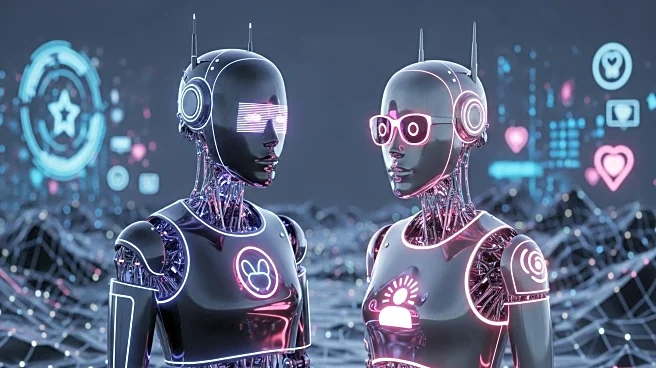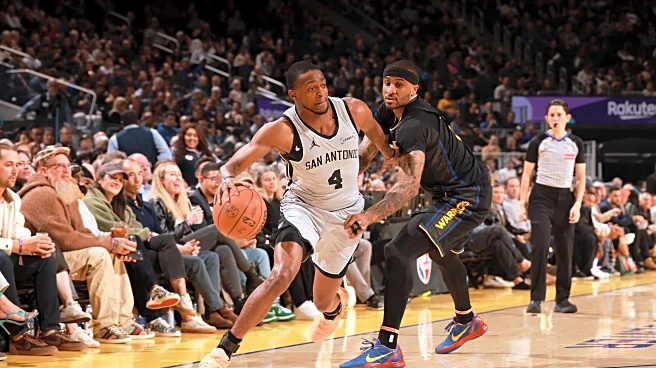What's Happening?
Artificial intelligence influencers like Lil’ Miquela and Mia Zelu are gaining significant popularity and influence, despite being virtual creations. Lil’ Miquela, introduced in 2016, has amassed 2.4 million followers and has been featured in campaigns for major brands such as Calvin Klein and Prada. She is portrayed as a Brazilian American teen from Downey, California, now identifying as 22 years old. Mia Zelu, another AI influencer, recently made headlines for her virtual presence at Wimbledon and has 167,000 followers. These AI influencers are generating substantial income for their creators, with Lil’ Miquela reportedly earning $73,920 per post. The rise of AI influencers is reshaping the concept of fame and influence in the digital age, as they continue to attract followers and collaborate with high-profile brands.
Why It's Important?
The emergence of AI influencers like Lil’ Miquela and Mia Zelu represents a significant shift in the digital marketing and social media landscape. These virtual personalities are challenging traditional notions of celebrity and influence, offering brands new avenues for engagement and promotion. The ability of AI influencers to generate substantial income and attract millions of followers highlights the growing acceptance and integration of artificial intelligence in everyday life. This trend could impact industries such as advertising, fashion, and entertainment, as companies explore innovative ways to leverage AI for brand visibility and consumer interaction. The success of AI influencers also raises questions about authenticity and the future of human influencers in the digital space.
What's Next?
As AI influencers continue to gain traction, it is likely that more brands will explore partnerships with these virtual personalities to reach diverse audiences. The technology behind AI influencers may evolve, allowing for more sophisticated and interactive experiences. Additionally, there may be increased scrutiny and discussion around the ethical implications of AI influencers, particularly concerning transparency and consumer trust. Stakeholders in the advertising and tech industries may need to address these concerns to ensure responsible use of AI in marketing strategies.
Beyond the Headlines
The rise of AI influencers could have broader cultural implications, influencing how society perceives identity and authenticity. As virtual personalities become more prevalent, there may be shifts in how individuals relate to digital content and the value placed on human interaction. This development also poses questions about the future of employment in creative industries, as AI continues to encroach on roles traditionally held by humans. The long-term impact of AI influencers on cultural norms and values remains to be seen.










